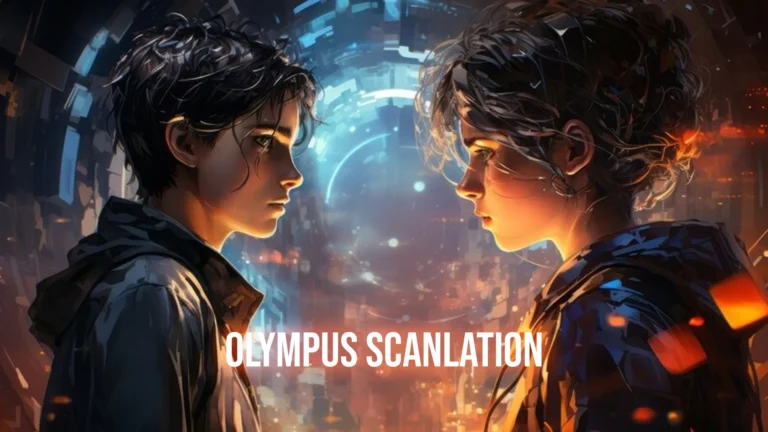Introduction to Olympus Scanlation: A Hidden Gem in the Manga World
The rise of online manga communities has opened new doors for manga lovers to access stories from various genres that would otherwise remain out of reach. One of the prominent names in the fan-translation scene is Olympus Scanlation. This community has built a reputation for its dedication to translating and sharing manga titles that are often overlooked or difficult to find. In this article, we’ll explore what Olympus Scanlation is, the impact it has had on the fan-translation community, and why it continues to be an essential resource for manga enthusiasts.
What is Olympus Scanlation?
Olympus Scanlation refers to a group of dedicated fans who take it upon themselves to translate Japanese manga into other languages, primarily English. The term “scanlation” is a blend of “scan” (referring to scanned images of manga pages) and “translation” (the process of converting the original Japanese text into another language). This community has made significant contributions to the accessibility of manga by providing English-speaking fans with translations of manga that are not officially localized.
Scanlation groups like Olympus Scanlation fill the gap left by publishers who may not be interested in localizing certain titles due to market demands or licensing issues. These fan groups work with passion and dedication to bring these titles to a wider audience, often working with little to no financial compensation. The driving force behind such efforts is the love for the medium and the desire to share unique and diverse manga stories.
The Origins of Olympus Scanlation
Though it’s hard to pinpoint the exact origins of Olympus Scanlation, it is likely part of a growing wave of online scanlation communities that emerged in the early 2000s. These groups initially started as small, hobbyist groups that would translate manga in their free time. Over time, many scanlation groups gained larger followings, as fans of various genres spread the word about the quality and availability of translations.
Olympus Scanlation specifically carved out a niche for itself by focusing on both popular titles and obscure, niche manga that other scanlation groups may have overlooked. As a result, the group gained a loyal fan base that appreciated their efforts to bring hard-to-find titles to light. The group’s name, “Olympus,” evokes the idea of grandeur and excellence, symbolizing their goal to provide top-tier translations to the manga community.
How Does Olympus Scanlation Work?
The process of creating a scanlation is far from simple. It involves multiple steps, including scanning the manga pages, translating the Japanese text, editing the images to replace the original text with the translated version, and typesetting the final result. For a group like Olympus Scanlation, this process requires collaboration among a team of dedicated individuals, each with specific roles to ensure that the final product is polished and accurate.
- Scanning: The first step involves obtaining physical copies of the manga or digital scans of the manga from various sources. These scans are cleaned up to remove any imperfections, ensuring a crisp and clear image.
- Translation: The translated text is then created by skilled translators who are fluent in both Japanese and the target language (usually English). This step requires a deep understanding of both the language and the cultural nuances of the original manga.
- Editing and Typesetting: After the translation is done, the edited images are worked on. The translated text is inserted into the manga panels, replacing the original Japanese text. Typesetting involves ensuring that the text fits properly within the artwork and is easy to read.
- Quality Control: Before the final product is released, it undergoes quality control to make sure that everything is perfect. This can include double-checking the translation, ensuring consistency, and fixing any visual or typographic issues.
The Impact of Olympus Scanlation on the Manga Community
Olympus Scanlation has had a significant impact on the broader manga community, particularly in providing access to manga that has not been licensed in English-speaking countries. While official publishers have been increasingly improving their localization efforts, many fans still seek out fan-translated manga for a variety of reasons. These include the desire to read lesser-known titles, the wish to read manga before it is officially released in their region, or simply the joy of discovering new stories in the vast world of manga.
Fan-translated works like those from Olympus Scanlation also contribute to the diversity of stories available to fans. While mainstream publishers tend to focus on certain genres like shonen (targeted at young boys) and shojo (targeted at young girls), scanlation groups have the freedom to focus on niche genres, including BL (Boys’ Love), GL (Girls’ Love), seinen (targeted at adult men), and josei (targeted at adult women), among others. This diversity in content helps expand the reach of manga, ensuring that readers of all tastes can find something to enjoy.
Challenges Faced by Olympus Scanlation
While Olympus Scanlation and other scanlation groups have had a positive influence on the global manga landscape, their work is not without challenges. One of the major hurdles is dealing with legal issues related to copyright. Since scanlation involves the translation and distribution of copyrighted material without permission, it often exists in a legal gray area. Many publishers and creators have expressed concerns about scanlation, as it can impact official sales, even though the goal of scanlators is typically not profit-driven.

Over the years, some publishers have taken legal action to shut down scanlation websites or demand that groups stop distributing specific manga titles. For Olympus Scanlation and similar groups, this has led to concerns about the sustainability of their operations. Some groups have even shut down in response to legal pressures, though others continue to operate by being more discreet about their activities or by focusing on less commercially viable titles that are less likely to draw legal attention.
Another challenge scanlation groups face is the need for consistent quality control. Since the work is often done by volunteers, there can sometimes be issues with translation accuracy or technical problems in the typesetting. Despite these challenges, Olympus Scanlation has been praised for its high standards, which helps maintain its loyal fan base.
The Future of Olympus Scanlation
As the landscape of manga continues to evolve, the role of scanlation groups like Olympus Scanlation remains crucial in the global dissemination of manga. With the increasing availability of official English translations, some fans may wonder whether scanlation groups are still necessary. However, for many readers, scanlation offers access to titles that may never receive an official release or brings new titles to their attention far before they’re officially available.
In the future, Olympus Scanlation will likely continue to operate in the ever-evolving world of fan translations. While it’s possible that the legal pressures on fan translation groups will increase, the passion and dedication of the scanlation community will likely ensure that fan-driven translations remain a vital part of the manga ecosystem for years to come.
Also Read Here: Denika Kisty: An In-Depth Look at Her Life, Work, and Impact
Conclusion
In conclusion, Olympus Scanlation is an integral part of the fan-translation world, providing readers with access to a vast array of manga titles that may not be otherwise available. Their efforts, driven by a love for the medium and a dedication to sharing manga with a wider audience, have made them a beloved name in the manga community. While challenges, including legal issues and translation accuracy, persist, the future of scanlation groups like Olympus Scanlation remains bright as long as there are fans passionate about discovering and sharing new stories.

